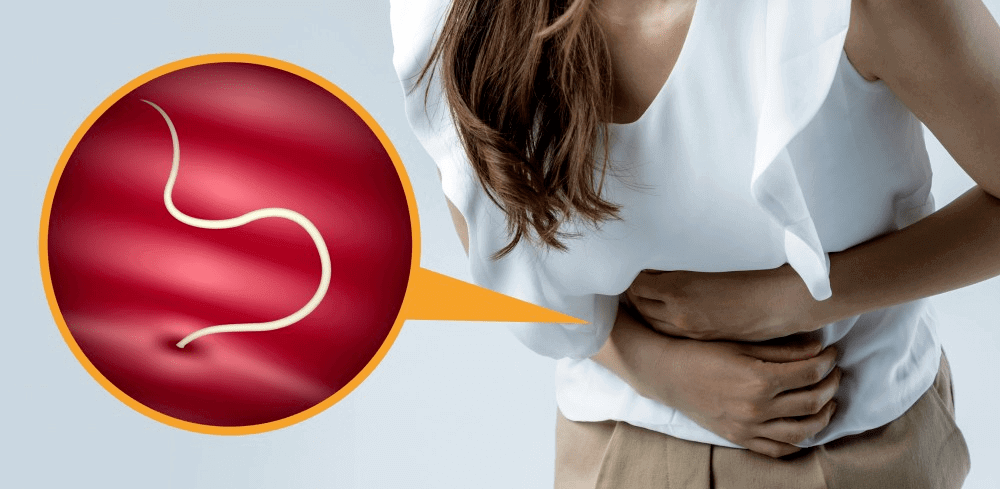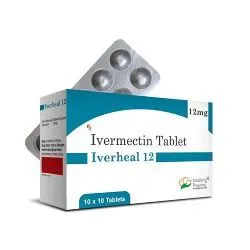Parasitic worms, also known as helminths, are organisms that live and feed off living hosts, including humans. These worms can infect various parts of the body, leading to a range of symptoms and health issues. Understanding the types of worms, their symptoms, treatment options, and prevention methods is crucial for maintaining good health.
1. Introduction to Worms in Humans
Parasitic worms are a diverse group of organisms that can infect humans through various means, including contaminated food or water, contact with infected soil, or through insect vectors. Once inside the body, these worms can cause a variety of health problems ranging from mild discomfort to severe illness.
2. Types of Worms That Can Infect People
Tapeworms
Tapeworms are flat, ribbon-like worms that can grow inside the human intestines. They are often acquired by consuming contaminated food or water containing tapeworm eggs or larvae. Symptoms of tapeworm infection may include abdominal pain, nausea, weight loss, and segments of the worm in stool.
Flukes
Flukes, also known as trematodes, are small, leaf-shaped parasites that can infect various organs such as the liver, lungs, and intestines. Infection occurs through ingestion of contaminated water or undercooked fish or aquatic plants. Symptoms of fluke infection may vary depending on the affected organ but can include fever, abdominal pain, and fatigue.
Hookworms
Hookworms are small, thread-like parasites that live in the small intestine of infected individuals. They are commonly found in tropical and subtropical regions and are transmitted through contact with contaminated soil. Symptoms of hookworm infection may include anemia, abdominal pain, diarrhea, and fatigue.
Pinworms (Threadworms)
Pinworms are small, white worms that commonly infect the intestines of children. They are highly contagious and are spread through the ingestion of pinworm eggs, usually via contaminated hands or objects. Symptoms of pinworm infection may include itching around the anus, restlessness, and difficulty sleeping.
Trichinella
Trichinella is a type of roundworm that can infect humans who consume raw or undercooked meat, particularly pork. Once ingested, the larvae of Trichinella can migrate to various muscles in the body, leading to symptoms such as muscle pain, fever, and swelling around the eyes.
3. Symptoms of Parasite Infections in Humans
The symptoms of parasitic worm infections can vary depending on the type of worm involved and the affected organ. However, common symptoms may include:
- Abdominal pain
- Nausea and vomiting
- Diarrhea or constipation
- Fatigue
- Weight loss
- Anemia
- Itching or irritation around the anus
4. Diagnosing Parasitic Worm Infections
Fecal Test
A fecal test involves examining a sample of stool under a microscope to detect the presence of worm eggs or larvae.
Blood Test
A blood test may be conducted to look for specific antibodies or other indicators of worm infection.
Imaging Tests
Imaging tests such as ultrasound or MRI may be used to visualize the internal organs and detect any abnormalities caused by worm infections.
Tape Test
In cases of pinworm infection, a piece of transparent tape may be pressed against the skin around the anus to collect pinworm eggs for examination under a microscope.
Colonoscopy
In some cases, a colonoscopy may be performed to directly visualize the intestines and identify any signs of worm infestation.
5. Treatment Options for Parasitic Worm Infections
Several medications are available to treat parasitic worm infections, including:
- Ivermectin
- Albendazole
- Mebendazole
- Praziquantel
These medications work by killing the worms or inhibiting their ability to reproduce, thereby eliminating the infection from the body.
6. Outlook for People with Parasitic Worm Infections
The outlook for individuals with parasitic worm infections varies depending on factors such as the type of worm involved, the severity of the infection, and the promptness of treatment. In general, most parasitic worm infections can be effectively treated with medication, leading to a full recovery.
7. Prevention of Parasitic Worm Infections
How to Prevent Parasitic Worm Infections
- Practice good hygiene, including washing hands frequently with soap and water.
- Cook meat thoroughly and avoid consuming raw or undercooked meat.
- Avoid drinking untreated water from potentially contaminated sources.
- Wash fruits and vegetables thoroughly before consumption.
- Educate yourself about the risks of worm infections when traveling to endemic areas.
Actions to Take When Traveling
- Drink only bottled or boiled water.
- Avoid eating raw or undercooked food, particularly meat and seafood.
- Use insect repellent and wear protective clothing to prevent insect bites.
- Be cautious when swimming in freshwater lakes or rivers, as they may be contaminated with parasite larvae.
In conclusion, parasitic worm infections are a significant public health concern worldwide, affecting millions of people each year. By understanding the types of worms, their symptoms, treatment options, and prevention methods, individuals can take proactive steps to protect themselves and their families from these potentially harmful parasites.
FAQs
- Are parasitic worm infections common in developed countries?
- While parasitic worm infections are more prevalent in developing countries, they can still occur in developed countries, particularly among certain demographics or in regions with poor sanitation.
- While parasitic worm infections are more prevalent in developing countries, they can still occur in developed countries, particularly among certain demographics or in regions with poor sanitation.
- Can pets transmit parasitic worms to humans?
- Yes, certain parasitic worms can be transmitted from pets to humans through contact with contaminated feces or soil. It’s essential to practice good hygiene and deworm pets regularly to minimize the risk of transmission.
- Yes, certain parasitic worms can be transmitted from pets to humans through contact with contaminated feces or soil. It’s essential to practice good hygiene and deworm pets regularly to minimize the risk of transmission.
- Are there any natural remedies for treating parasitic worm infections?
- While some natural remedies may have anecdotal benefits, such as consuming garlic or pumpkin seeds, it’s essential to consult a healthcare professional for the proper diagnosis and treatment of parasitic worm infections.
- While some natural remedies may have anecdotal benefits, such as consuming garlic or pumpkin seeds, it’s essential to consult a healthcare professional for the proper diagnosis and treatment of parasitic worm infections.
- How long does it take to recover from a parasitic worm infection?
- The recovery time from a parasitic worm infection varies depending on factors such as the type of worm, the severity of the infection, and the effectiveness of treatment. In general, most individuals can expect to recover fully within a few weeks to months with appropriate medical care.
- The recovery time from a parasitic worm infection varies depending on factors such as the type of worm, the severity of the infection, and the effectiveness of treatment. In general, most individuals can expect to recover fully within a few weeks to months with appropriate medical care.
- Can parasitic worm infections be prevented entirely?
- While it may not be possible to prevent parasitic worm infections entirely, individuals can significantly reduce their risk by practicing good hygiene, avoiding contaminated food and water, and taking precautions when traveling to endemic areas.






